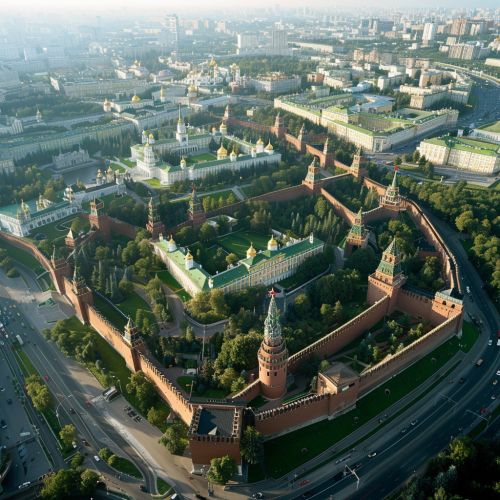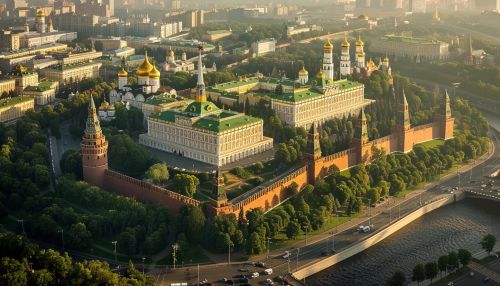History of Russia
Early History
The history of Russia begins with the histories of the East Slavs. The traditional start-date of specifically Russian history is the establishment of the Rus' state in the north in 862, ruled by the Varangians. Staraya Ladoga and Novgorod became the first major cities of the new union of immigrants from Scandinavia with the Slavs and Finns. In 882 Prince Oleg of Novgorod seized Kiev, thereby uniting the northern and southern lands of the Eastern Slavs under one authority.


Mongol Invasion
The state adopted Christianity from the Byzantine Empire in 988, beginning the synthesis of Byzantine and Slavic cultures that defined Russian culture for the next millennium. Kievan Rus' ultimately disintegrated as a state due to the Mongol invasions in 1237–1240 along with the resulting deaths of significant numbers of the population.
Grand Duchy of Moscow
The most powerful successor state to Kievan Rus' was the Grand Duchy of Moscow (or "Muscovy" in the Western chronicles), initially a part of Vladimir-Suzdal. While still under the domain of the Mongol-Tatars and with their connivance, Moscow began to assert its influence in the Central Rus' in the early 14th century, gradually becoming the leading force in the process of the Rus' lands' reunification and expansion of Russia.
Tsardom of Russia
Ivan III (the Great) finally threw off the control of the Golden Horde and consolidated the whole of Central and Northern Rus' under Moscow's dominion. He was also the first to take the title "Grand Duke of all the Russias". After the fall of Constantinople in 1453, Moscow claimed succession to the legacy of the Eastern Roman Empire. Ivan III married Sophia Palaiologina, the niece of the last Byzantine emperor Constantine XI, and made the Byzantine double-headed eagle his own, and eventually Russia's, coat-of-arms.
Russian Empire
In the early 18th century, the Tsardom was transformed into a modernized Russian Empire under Peter the Great. Peter the Great's reforms brought considerable Western European cultural influences to Russia. The reign of Peter I's daughter Elisabeth in 1741–62 saw Russia's participation in the Seven Years' War (1756–63). During this conflict, Russia annexed East Prussia for a while and even took Berlin.
Soviet Union
The Russian Revolution in 1917 led to the founding of the Soviet Union under the leadership of Vladimir Lenin. The country quickly industrialized, and despite the devastation caused by World War II, it emerged as a superpower. The USSR was the first country to launch a man into space, and it was instrumental in the Allied victory in World War II.
Russian Federation
The Soviet Union collapsed in 1991, and the Russian Federation emerged as an independent country. Despite economic and political turmoil in the 1990s, Russia has re-emerged as a global power under the leadership of President Vladimir Putin.
